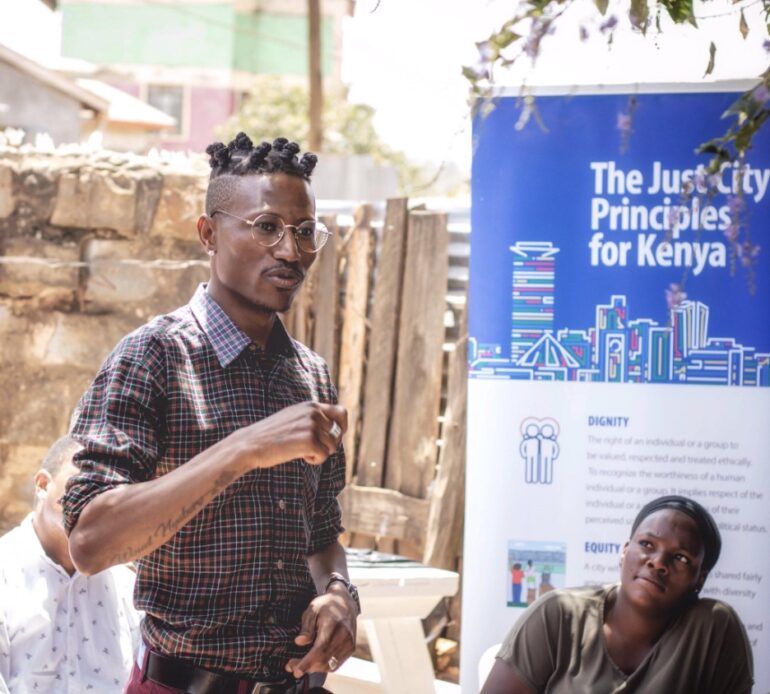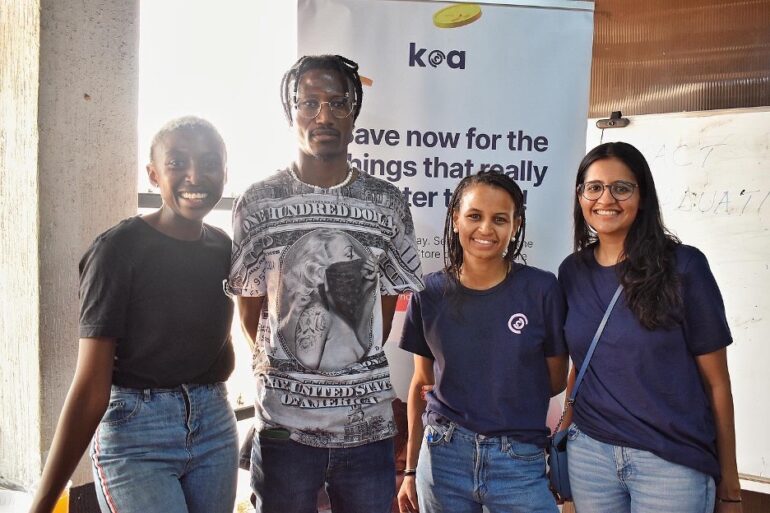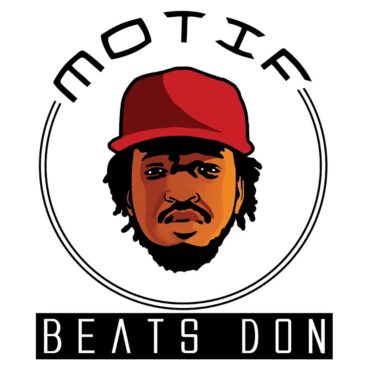In a declaration shared on social media on November 4, Kenyan hip-hop artist Octopizzo(born Henry Onyango Ohanga) announced his intention to contest the Kibra Member of Parliament seat in the 2027 General Elections. “Kibra, it’s time we rise – I’m running in 2027 to build the future we deserve,” he stated during a live X Space session and in subsequent posts. The move has drawn immediate attention, with supporters praising his community ties and critics questioning whether a musician can navigate Kenya’s political landscape. As reactions continue to pour in, including calls for him to focus on music, Octopizzo has reaffirmed his commitment, responding to doubters by emphasizing his long-standing work in the constituency.
Roots in the Slum: From Kibra Kid to Kenyan Rap Icon
Octopizzo’s story is woven into the very fabric of Kibra, Nairobi’s sprawling slum where over 250,000 souls navigate daily battles against poverty, flooding, and forgotten promises. Born as the firstborn in a family of four, young Henry grew up scavenging amid garbage heaps, his dreams fueled by bootleg cassettes of Tupac and Nas. Kibera wasn’t just a backdrop; it was his muse, shaping lyrics that dripped with unfiltered truth.
His ascent began in the early 2000s with the formation of Young, Gifted and Black (YGB), a Kibera-based youth collective that doubled as a creative haven and community lifeline. By his teens, Octopizzo was spitting bars at underground cyphers, blending Sheng slang with social critique. Breakthrough came in the 2010s: tracks like Oya and Sijawahi exploded on radio, earning him Groove Awards for Best Rapper and nods from BBC and MTV. His 2014 album Departure marked the shift from slum MC to national treasure, with collaborations spanning East Africa and beyond.Today, even with over 1 million monthly Spotify listeners, the king of drip still offers free Kibera concerts and mentorship for local artists, keeping him grounded and proving fame hasn’t diluted the dirt under his nails.

Humanitarian Efforts Through the Octopizzo Foundation
Octopizzo’s influence extends far beyond platinum plaques; it’s etched in the lives he’s lifted via the Octopizzo Foundation, launched in 2015 as a bulwark against despair. Rooted in Kibera but rippling to Siaya and Kwale, the nonprofit channels his earnings into tangible upliftment, embodying his mantra: “Liberation from desperation and dependency.”
Standout efforts include the UNHCR-partnered “Artists for Refugees” program, which since 2015 has equipped over 500 youth in Dadaab and Kakuma camps with music production skills, turning trauma into tracks that echo global stages. In Kibera, solar-powered lights and water purifiers have illuminated and hydrated 10,000+ homes and schools, while Siaya’s biogas projects slash firewood dependency and emissions.
Education initiatives such as scholarships, vocational hubs, and entrepreneurship bootcamps have empowered 2,000 young Kibera residents, many now running small businesses. UN accolades and NGO alliances affirm his impact, positioning Octopizzo not as a celebrity philanthropist, but a development architect whose work prefigures his political vision: sustainable, community-owned progress.
Amplifying the Voiceless: Social Firebrand in Protests and Music
Few artists wield social media like a megaphone quite like Octopizzo, whose X feed is a relentless dispatch from Kibra’s frontlines; lambasting evictions, police excesses, and joblessness with threads that rack up millions of views. His rhetoric is unyielding: pro-youth, anti-graft, and fiercely local, often @-ing leaders with demands for accountability.
The 2024 Gen Z-led protests against the Finance Bill crystallized his role as a movement maestro. From June to July, Octopizzo was Twitter’s thunder—live-tweeting tear-gas skirmishes, eulogizing the 40+ fallen, and rallying for reform under #RejectFinanceBill. He staged benefit gigs for victims’ families and mobilized peaceful marches, bridging art and activism. This fire infuses his music: the May 2025 release of June 25th is a sonic memorial, layering protester testimonies over haunting beats and archival footage, amassing 1 million YouTube views overnight.
His August 2025 meeting with David Maraga, ex-Chief Justice and United Green Movement (UGM) presidential hopeful, further amplified his stature. Amid talks on ethical governance, their photo-op fueled buzz of a potential youth alliance, with Maraga’s anti-corruption cred resonating in protest-weary circles. For Kibra’s youth, Octopizzo isn’t just outspoken, he’s their unfiltered envoy.

Road to Parliament: Navigating Eligibility and the Challenges Ahead
Entering Kenya’s political arena as a candidate for the Kibra parliamentary seat requires meeting clear legal thresholds under the Constitution’s Article 99 and the Elections Act. Octopizzo satisfies the basics: he is a Kenyan citizen by birth, a registered voter, and free from disqualifications such as criminal convictions carrying sentences of six months or more, bankruptcy, or public office conflicts. To formally enter the race, he would need nomination by a political party or, as an independent, signatures from at least 1,000 registered voters in the constituency, along with a nominal KSh 10,000 fee to the Independent Electoral and Boundaries Commission (IEBC). Given his established local presence, gathering such support should pose little difficulty.
The real obstacles lie in securing victory in a constituency like Kibra, home to around 170,000 registered voters, over 60 percent of whom are under 35 and many facing economic hardship. Kibra has long been a stronghold for major parties and especially the Orange Democratic Movement (ODM) , where political mileage often stems from ethnic affiliations and historical ties. These parties benefit from deep organizational structures that dominate voter outreach, while campaigns in such areas frequently involve substantial financial outlays, estimated at KES 50 million to 200 million per race. A significant portion of these budgets, estimated up to 30 percent in low-income settings, goes toward vote-buying, with individual inducements ranging from KES 100 to 1,000, exploiting immediate vulnerabilities like food insecurity or school fees.
Logistically, coordinating across Kibra’s dense, informal settlements demands a robust network to manage polling agents, transport supporters, and monitor for irregularities such as ballot stuffing or voter intimidation, issues that have marred past elections in the area. Policy competition adds another layer: voters prioritize practical concerns like access to clean water, affordable housing, and job creation, yet established candidates often deliver on promises through patronage rather than systemic reform, perpetuating a cycle of dependency.
What Can He Do To Overcome?
For Octopizzo to overcome these barriers, a strategy centered on transparency, community mobilization, and targeted policies would be essential. On finances, he could tap into his broad fanbase through digital crowdfunding campaigns, such as “one-shilling” contributions from supporters worldwide, supplemented by revenue from music tours and ethical endorsements, aiming for a verifiable budget around KSh 100 million. This approach would contrast sharply with opaque funding sources, allowing him to highlight accountability as a core value.
Logistically, leveraging the Octopizzo Foundation and YGB network—already comprising over 2,000 volunteers—would enable grassroots canvassing and election-day oversight. Digital tools, including real-time updates on X and community WhatsApp groups, could facilitate voter education and rapid response to misconduct, encouraging higher turnout among the youth demographic that propelled the 2024 protests.
In terms of policy, a platform like “Kibera First” could build on his foundation’s successes, proposing expansions such as installing 10,000 solar energy kits, establishing vocational job centers, and launching anti-corruption education drives to empower residents against inducements. Aligning with figures like David Maraga could forge coalitions with reform-minded youth groups, framing the campaign around long-term equity rather than short-term gains; a message of “voting for the future, not just today.”

Written by Otieno Arudo







